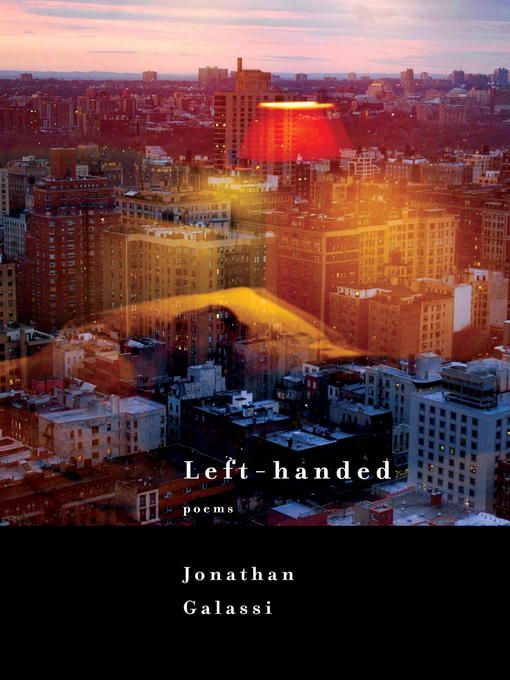
Left-handed
Poems
کتاب های مرتبط
- اطلاعات
- نقد و بررسی
- دیدگاه کاربران
نقد و بررسی

March 26, 2012
FSG president and noted translator Galassi, in his third collection of poems, tells a tale of love—and a lifestyle—ended and new love and life found. The four-line poem “Young” sums up the heterosexual life left behind: “I tried, and each attempt was a fiasco./ I yearned, but every love of mine was wrong./ I needed, and the shame was overwhelming./ I failed, and so I hated being young.” With a light touch reminiscent of James Schuyler, Galassi’s speaker free-associates his way down the page and deeper into his anxieties, addressing one or more unnamed beloveds, as in “The Scarf”: “When or if you wear/ your Loro Piana scarf/ the one I gave you/ once upon a time why/ does it have to sit so/ heavy on your shoul-/ ders?” The poems ache with grief and guilt—and difficult acceptance—over the wife and family left: “your neck your back your voice/ your neck your back the tears/ the girls the life I left the lost/ life all of it was ours is ours/ was ours is ours was.” Passing through this guilt, the poems emerge in celebrations of new love and Eros: “You are toffee, you are sand in sunlight/ you are handsome, winsome, bright and lithe....” Galassi’s poems are first and foremost vulnerable, and many will find this book, which reads not unlike a novel, startling.

April 1, 2012
In his third collection (after 2000's North Street), noted translator, editor, and literary publisher Galassi charts a difficult, deeply personal topography of life-changing events, from the dissolution of his long marriage through an unexpected sexual reorientation and the new, fulfilling love it brings. Galassi's meticulous prosody and unadorned diction parallel the spare classicism characteristic of ancient Greek masters, channeling complex emotions without compromising their integrity. The poet's unsettled definition of middle age--when "the mixture of/ death and life in him was/ still undetermined"--is manifest throughout these contemplative poems of self-discovery and self-examination, in which he voices indecision ("Where are the objects/ of all my affections?/ Will what I'm doing/ result in right action?") as often as conviction ("I own myself today..."). VERDICT While some may wish for more tonal variation and a broader focus, this intensely heartfelt work by an accomplished craftsman will strike sharp chords of recognition in those who have experienced similar circumstances.--Fred Muratori, Cornell Univ. Lib., Ithaca, NY
Copyright 2012 Library Journal, LLC Used with permission.

March 15, 2012
Poet, editor, and translator Galassi, who is also president and publisher of Farrar, Straus and Giroux, considers sanctuary in nature and the world in a state of constant fluctuation, writing of history and proximity the way one might point to a river and give it a name, knowing that it is fluid and always in flux. In his attempt to reconcile amorphous subject matter with formal verse, Galassi packs his poems with consonance and alliteration, yet constricts many stanzas to an inch's width, which resemble Roman columns or, as one series' title suggests, texts composed by BlackBerry Messenger. In these cosmopolitan poems, Galassi is at home on Seventh Avenue in New York, while vividly imagining a citrus grove, where oranges steal sunlight and become small suns. Like the later work of Italian poet Eugenio Montale (a poet Galassi has ardently translated), Galassi exhibits a clever self-consciousness, writing subtly about his late coming-out as gay and, at one point, worrying that he's repeating himself, a prospect especially terrifying, he says, for someone only midway through life.(Reprinted with permission of Booklist, copyright 2012, American Library Association.)

























دیدگاه کاربران